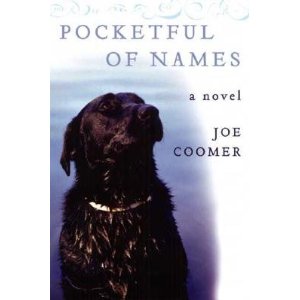Writing Exercise: Write a Devotional. Devotions have different formats depending on what the publisher wants. For this exercise, follow this format:
- Include 3 scriptures (listed or typed out)
- Devotion should be 250-550 words
- Include a "Life Application" and/or "Questions for Reader" section at the end.
My devotion below was submitted to "Write From the Heart - Devotions for Writers", a future e-book by Pam Williams.
Sticks and Stones
by Dawn M. Hamsher
Scripture Readings: Proverbs 12:6, Proverbs 16:24, Job 4:3-4
The girl handed a small folded note to her friend, who read it and snickered. She passed the note to a boy, who read it, whined, “Waaahh” and then slid it to another boy. He passed it to another kid, who passed it… Before the teacher took the note, the damage was done. I was labeled the cry baby of the 4th grade.
Never mind the fact that my mother had just had a nervous breakdown. We had to abruptly move back to the states in the middle of the school year; we had no home yet, so we lived with my grandparents; I had no friends; I was failing math. My young life was in turmoil.
Yes, I cried at school during math class and the note was circulated. Those thoughtless words, “The new girl’s a cry baby” defined and defeated me. Those kids didn’t know me. They didn’t know my situation - the stress I was under. They didn’t care. I felt alone, rejected. I got through the rest of the school year without crying. In fact, I didn’t cry again for 13 years. That’s how much those words affected me.
The old saying, “Sticks and stones may break my bones, but words can never hurt me” is a lie. Most physical hurts, heal, but emotional ones tend to linger and inflict pain over and over again as the mind replays the scene. And, it’s not just kids that do the damage. We’ve all blurted out comments without thinking.
As Christian writers, no matter what we write (whether it’s articles, devotions, fiction, or poetry), we have a responsibility to Christ. The Bible tells us to build others up, not tear them down. One way to accomplish this is to seek God’s wisdom before we write.
· What is wisdom? It is the ability to discern or judge what is true and right.
· What does the Bible say about wisdom? Proverbs 3: 21-22 says “My son, do not let wisdom and understanding out of your sight, preserve sound judgment and discretion; they will be life for you, an ornament to grace your neck.”
Using wisdom as a guide to life means that we think before we speak and write. Because words have power, we should not use them carelessly, but be deliberate when choosing them, so that our words reflect Christ. If the world’s words are used to hurt, then our words should be used to heal.
Prayer: Thank you, Holy Father for enveloping me in your love. Past hurts, written or spoken, no longer sting in your embrace. You are the healer of my heart. Lord, help me to use my words in a way that will glorify you and encourage others.
Life Application Writing Prompt
Write about words that had a strong affect on you, either negatively or positively. It could be a hurtful word from your childhood, a note of praise from a teacher, or a careless comment from a co-worker.
When finished, consider these questions:
- What can you learn from the words and your experience?
- How can you use that knowledge in your writing?
- How can your writing glorify God (re-read Job 4:3-4)?
Proverbs 12:6 (NLT) The words of the wicked are like a murderous ambush, but the words of the godly save lives.
Proverbs 16:24 (NIV) Gracious words are a honeycomb, sweet to the soul and healing to the bones.
Job 4:3-4 (NLT) In the past you have encouraged many people; you have strengthened those who were weak. Your words have supported those who were falling; you encouraged those with shaky knees.


